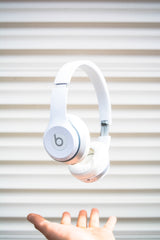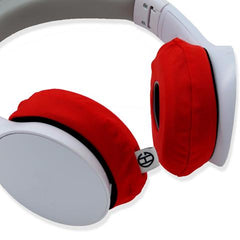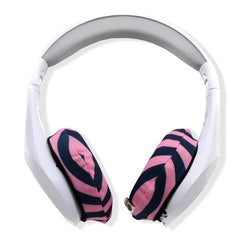Working Out with a Hangover: Is it worth it?

If moulding on the sofa with a bottle of Lucozade and Come Dine with Me on the television is your standard Sunday afternoon, you’re not alone. 77% of people admit to being hungover at least once before, so you probably know exactly what it feels like to be hanging.
And surprisingly, it’s people who exercise regularly that are most likely to drink to excess. Speaking to the HuffPost, Mark Leyshon, senior policy and research officer at Alcohol Concern said it’s not known for certain why this should be the case, but that there’s often a ‘play hard, drink hard’ attitude in the fitness world. With this in mind, we wanted to find out if it is okay to exercise with a hangover.
What is a hangover?
Cotton mouthed, thick-headed, light sensitive, tremoring hands or legs, nausea, vomiting, diarrhoea, lethargy, dizziness - take your pick. What you were drinking, how much you drank, whether or not you’d eaten beforehand and individual tolerance to the devil’s water will all dictate what form a hangover will take.
Dr Damaris J. Rohsenow, Associate Director of the Centre for Alcohol and Addiction Studies at Brown University told Thrillist that a hangover was "the set of subjective, unpleasant symptoms that occur after most alcohol has left the body after a single episode of heavy drinking."
Accurate? Yeah, but it falls kind of short when it comes to encapsulating the absolute mouldy horrorshow of a real honest-to-God hangover. We thought Russian novelist Mikhail Bulgakov came closest when he described this in his acclaimed novel “The Master and Margarita”.
“If Styopa Likhodeev had been told the next morning: ‘Styopa! You’ll be shot if you don’t get up this minute!’ — Styopa would have replied in a languid, barely audible voice: ‘Shoot me, do what you like with me, I won’t get up.’
Not only not get up, it seemed to him that he could not open his eyes, because if he were to do so, there would be a flash of lightning, and his head would at once be blown to pieces.
A heavy bell was booming in that head, brown spots rimmed with fiery green floated between his eyeballs and his closed eyelids, and to crown it all he was nauseous, this nausea, as it seemed to him, being connected with the sounds of some importunate gramophone..”
Can you work out with a hangover?
Some absolute sadists swear that the only way to go is to sweat-off a hangover. Sweating rids the body of toxins and it’s those pesky toxins that have been making you feel like pure shite. It’s a reasonable idea until you realise that only around 1% of toxins are released this way. By the time your hangover really kicks in, your liver will already have metabolised most of them. And anyway, if you’re already dehydrated then it’s going to make you feel much worse. Maybe keep your moisture inside your body until you’re not dying under a duvet.
Damion Martins, M.D., a sports medicine physician and the director of Executive Health, Orthopedics, and Sports Medicine at New Jersey’s Atlantic Health System told Glamour magazine that “You can't sweat out a hangover. By trying to do so, you further dehydrate your body, leading to more detrimental effects.” He goes on to explain that hydration is the key to fighting off the effects of a hangover and helping to make it more manageable. He recommends “aggressively hydrating” and it makes far more sense to concentrate on adding fluids rather than taking them away.

And it’s not just how much you’ve drunk that’s a factor. The liver is an amazing organ, but it can only process toxins so fast. The liver takes 1 hour to detox 1 unit of alcohol which is roughly a half-pint of 4% lager. It means that if you’ve had 7 pints of an average strength lager that the liver will take around 14 hours to process it, so you could still be under the influence of alcohol when you start exercising. Driving to the gym could be a seriously bad idea, and so too is going into an environment with weights and machines that have hard, long or heavy edges (treadmills, ellipticals and bikes, for example). Your coordination is going to be off, and your response time will be delayed. You run the risk of becoming more dehydrated, too, meaning you could go dizzy or pass out. There’s plenty of opportunity for injury.
Your performance is going to blow, too. Maybe you deserve a gold star for even *thinking* about exercising when you’re hanging, but it seems pointless to think you’ll be anywhere near to your best. Dr Sarah Jarvis, a medical advisor for Drinkaware, told the HuffPost that as alcohol messes with how the liver produces glucose that during a hangover, blood sugar levels are going to be reduced. You’re going to get tired faster.
Can’t We Get Just a Lil’ Bit Sweaty?
It’s not all bad news, though. If you’ve got a light hangover, then there’s no reason why you can’t do a little exercise. The focus, however, shouldn’t be about ramping up the heart rate but about releasing endorphins to help you feel happier. Going for a light jog, a brisk walk, using light weights or a bit of yoga can help banish the boozy cobwebs. The key is to listen to your body, and if even getting up off the sofa feels like a marathon, then leave the running shoes where they are.
Two studies presented by The Society of Neuroscience found evidence (amongst rodents) that aerobic exercise could actually help to reduce and repair some of the damage caused by alcohol. The one study used mice and the other rats. Half of each group in each study were given alcohol and the other half weren’t. The rodents were then allowed to exercise. The New York Times reported on the findings in which both studies found: “That the brains of the rodents that exercised after receiving alcohol were substantially different from those of their sedentary counterparts. The inactive mice had weakened mitochondria in many neurons; the runners had hardy mitochondria. The sedentary rats given alcohol had almost 20 percent fewer neurons in their hippocampi than the control animals. The rats who were made to work out, though, had as many neurons as the controls, even if they were given alcohol.”
Sounds promising, right? But as is so often the case the results were not reciprocated everywhere. Another study concluded its research into whether it was possible to treat a hangover and found “No compelling evidence exists to suggest that any conventional or complementary intervention is effective for preventing or treating alcohol hangover.”

Time is the only guaranteed cure for a hangover. Time and lots of fluids and maybe an anti-inflammatory tablet and definitely a bacon sandwich. Frustrating, sure, but as a hangover is self-inflicted, it’s hard to argue that we deserve anything less. Listen to your body. Don’t listen to the mate who swears by hair of the dog. Accept that sometimes, it’s okay to take a day off. It happens. It’ll probably happen again. It only becomes a big deal if it’s happening with increased regularity or if you’re constantly undermining your fitness and training goals. We might wish that there was a pill to cure a hangover, but the only real prevention is moderating your alcoholic consumption or by cutting the booze out completely.
Shit.

Sweat can’t cure a hangover, but it can do some serious damage to your headphones. EarHugz are sweat-resistant, antibacterial, machine washable headphone covers in a range of awesome designs made to protect your cans during intensive exercise.



